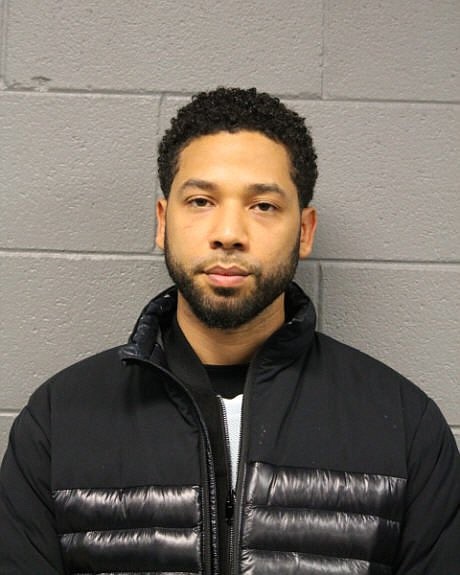Hate crimes are rising, regardless of Jussie Smollett's case. Here's why
CNN/Stylemagazine.com Newswire | 2/22/2019, 10:36 a.m.

By Dakin Andone and Emanuella Grinberg, CNN
(CNN) -- Chicago Police Superintendent Eddie Johnson said Thursday that "Empire" actor Jussie Smollett "took advantage of the pain and anger of racism" when he allegedly falsely reported that he was the victim of a hate crime.
And Johnson is worried about what the case could mean for victims of actual hate crimes.
"My concern is that hate crimes will now publicly be met with a level of skepticism that previously didn't happen," Johnson told reporters.
While Smollett's accusations are being investigated as an alleged fabrication, crimes fueled by racism, homophobia and other prejudiced views are on the rise, according to experts.
CNN previously reported on the FBI's hate crime statistics released last November, which showed the number of hate crimes reported to the bureau rose about 17% in 2017 compared to 2016. 2017 is the latest year for which those statistics are available.
It was the third-straight year that hate crime incidents rose.
But even the FBI's statistics tell only part of the story: About 50% of hate crime victims don't report the incidents to authorities, according to 2017 data from the Bureau of Justice Statistics.
Hate crimes are a 'reality'
And hate crime allegations show no signs of stopping, with plenty of examples reported in recent months.
"Rising hate crimes continue to be a reality in America," Jonathan Greenblatt, CEO of the Anti-Defamation League, said last December, after five reports of hate-related incidents made headlines in just four days.
Here's a brief list of recent incidents in which people face hate crime charges -- without taking into account a number of other cases that are still under investigation:
• This week, Florida prosecutors filed hate crimes charges against a white man who pointed a gun and yelled racial epithets at a group of African-American youths who were at an anti-violence protest on Martin Luther King Jr. Day. The man denied pointing the gun at the youths. His attorneys entered a not guilty plea on his behalf Wednesday.
• Late last month, an Ohio man was indicted on charges of attempting to commit a hate crime after he allegedly targeted a Jewish house of worship. CNN reached out to an attorney for the man at the time, but did not receive a response.
• Federal prosecutors filed hate crimes charges against the 46-year-old man accused of killing 11 worshipers at Pittsburgh's "Tree of Life" synagogue in October. He pleaded not guilty earlier this month.
• A student at the State University of New York's Purchase College was charged with a hate crime in December for allegedly hanging posters with Nazi symbolism around the school's campus. At the time, CNN left a message seeking comment at a phone number listed for the defendant's father.
Why hate crimes are rising
Experts told CNN in December that there's not a single factor that accounts for the disturbing trend, but part of the issue is the "increasing mainstream acceptance of hate speech and online hate," Greenblatt said.
He added, "Words have consequences."
While hate is not new to America, experts say the divisive political climate and the rise of hate speech, among other factors, are emboldening people to act on hateful impulses.
The Unite the Right rally in Charlottesville, Virginia, in August 2017 was a byproduct of that emboldened hate, said Nadia Aziz of the Lawyers' Committee for Civil Rights Under Law.
Several experts also credited the rise in hate crimes to President Donald Trump's divisive rhetoric directed at immigrants and people of color, in addition to policies that threaten those groups' rights.
"The President of the United States, both from his social media presence and his remarks during formal White House events, is regularly referring to fear as a motive for policy," said Maya Berry, the executive director of the Arab American Institute.
"We're seeing the presidential bully pulpit being used to divide and spread fear, and without question that has consequences in real peoples' lives."
CNN asked the White House for comment on those allegations, but did not receive a response.









